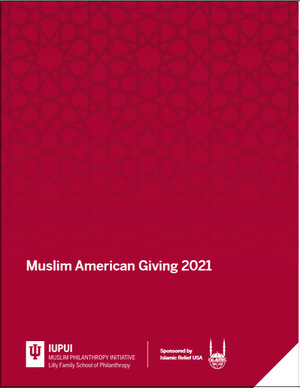Personal connections drive donor motivation, reports find
Fundraisers could benefit from making personal connections with, demonstrating impact to, and cultivating empathic responses from donors without inducing feelings of guilt or distress, three reports from the Indiana University Lilly Family School of Philanthropy at IUPUI argue.
Findings reveal donor motivations and expectations based on three new components of research in The Giving Environment series, a research project at the school funded by the Bill & Melinda Gates Foundation. Based on 16 focus groups with a total of 83 participants, the report The Giving Environment: Understanding How Donors Make Giving Decisions (32 pages, PDF) found that meaningful donor connections with nonprofit organizations as a pivotal factor in determining giving patterns and that individuals are more likely to give to organizations to which they have a prior relationship or familiarity.
A second report, The Giving Environment: Understanding Drivers for Donor Engagement (20 pages, PDF), is based on an experiment conducted with more than 1,500 participants designed to explore donor responses to specific donor communications channels. It revealed that in comparison to an email-based fundraising message or a three-sentence narrative description of a nonprofit's work, a video fundraising message generated a 43 percent increase in the connection rate among its viewers. The report also found that the video’s effectiveness stemmed from its ability to induce an empathic and/or moral response without also inducing strong negative feelings of sadness or guilt.
A third report, based on a survey of 259 participants conducted in partnership with Network for Good, The Giving Environment: New Models to Engage Donors (25 pages, PDF), indicated that a nonprofit’s mission was the top factor influencing donors to sign up for subscription giving and that personal relationships with staff at nonprofits also matter greatly in shaping the decision to become a subscription donor. In addition, the survey revealed that exclusive content featuring stories and experiences from the people benefiting from donor philanthropy is highly valued by all donors.
“Our newest findings make it unmistakably clear that donors not only want to understand the impact of their gifts, but value organizations that intentionally foster meaningful relationships with their donors,” said Una Osili, associate dean for research and international programs. “While such donor expectations are not new, our research suggests donors have increasing expectations for how organizations build connections with them and communicate the scope of their impact. Critically, our findings also suggest that donors are looking to support organizations with a demonstrated focus on affecting systemic change within the donors’ communities. Taken together, our findings begin to outline a new framework for best practices in donor engagement and cultivation.”
(Photo credit: Getty Images/nortonrsx)





